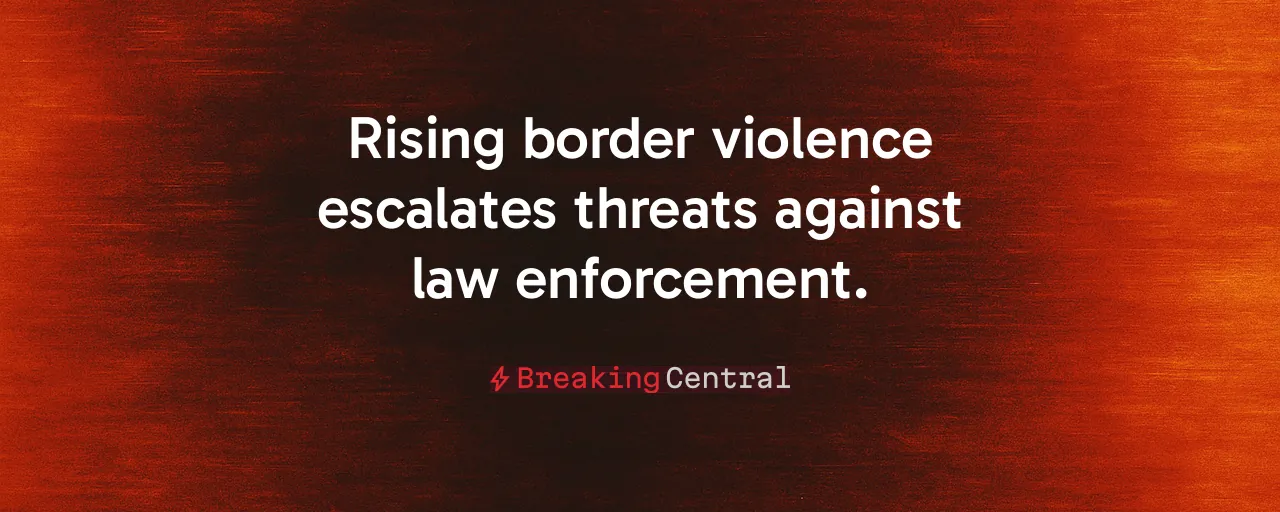Ambush in McAllen Shocks the Nation
A gunman in tactical gear opened fire on U.S. Border Patrol agents outside a facility near McAllen International Airport on July 7, 2025. The assailant, killed in the exchange by agents and McAllen police, leaving one McAllen police officer wounded but stable. Political commentator Benny Johnson swiftly brought the incident to millions, decrying it as part of a broader wave of hostility toward law enforcement. This attack, in the heart of Texas' Rio Grande Valley, reignites a fierce debate over border security and the safety of those tasked with protecting it.
The incident stunned local residents, disrupted airport operations, and amplified national concerns about escalating violence against federal agents. With the Rio Grande Valley a hotspot for smuggling and migrant crossings, the ambush underscores the dangers agents face daily. Beyond the immediate chaos, the event raises deeper questions about how to safeguard those on the frontlines while maintaining order in an increasingly volatile region.
A Rising Tide of Threats to Agents
Border Patrol agents operate in a pressure cooker. Data from U.S. Customs and Border Protection reveals 673 assaults on personnel in 2024, a record high. While most incidents involve physical confrontations, the use of firearms, as seen in McAllen, marks a disturbing escalation. The Rio Grande Valley, a corridor for illegal crossings and smuggling, accounts for a significant share of these attacks. Agents, often outnumbered and working long shifts, face risks that have grown sharper in recent years.
Historical patterns offer context. A 2019 drive-by shooting at a nearby checkpoint and spikes in violence during politically charged years like 2018 and 2020 point to a recurring problem. Advocates for stronger border enforcement argue that heated rhetoric vilifying agents fuels these attacks. They point to a reported 700 percent surge in assaults on Immigration and Customs Enforcement personnel over the past year as evidence of a broader cultural shift against law-and-order institutions.
The Cost of Inaction Hits Hard
The McAllen attack ripples beyond the agents. Local businesses near the airport faced lockdowns, and flight delays cost airlines tens of thousands of dollars per hour. Residents, already on edge from rising border activity, now grapple with heightened anxiety. For migrant communities, the incident stokes fears of intensified patrols and potential backlash. Economically, overtime for police and agents strains budgets, while calls for federal funding to harden facilities grow louder.
National political figures seized on the event, with some demanding immediate action to protect agents. The stakes are clear: without decisive measures, the safety of those guarding the border and the stability of local communities remain at risk. Past legislative efforts, like the Border Patrol Agent Pay Reform Act of 2014, bolstered training, but advocates argue more is needed to address today's threats.
Strengthening the Line of Defense
Solutions rooted in prioritizing agent safety and border security gain traction. Boosting resources for Customs and Border Protection tactical units, equipped with advanced surveillance and non-lethal tools, could deter future attacks. Expanding 287(g) agreements, which enable local law enforcement to assist federal agents, enhances response times and coordination, as seen in McAllen's swift police action. These measures aim to create a robust, layered defense against threats.
Tougher penalties also resonate. Mandating federal minimum sentences for assaults on agents sends a clear message: attacks on those protecting the nation's borders will face severe consequences. Physical barriers, like accelerated wall construction, and remote detention centers, such as Florida's proposed 'Alligator Alcatraz,' aim to reduce illegal crossings that strain agent resources and heighten risks. These steps align with a commitment to restoring order and supporting law enforcement.
Balancing Security With Community Trust
While fortifying defenses, maintaining public trust matters. University of Texas-Rio Grande Valley researchers note that blending immigration enforcement with local policing can strain community relations, raising constitutional concerns. Transparent investigations into use-of-force incidents, coupled with universal body-worn cameras for agents, could bridge gaps. These tools provide accountability, ensuring actions are justified while protecting agents from unfounded criticism.
Bipartisan ideas show promise. Upgrading facilities with ballistic glass and panic alarms enhances safety without militarizing civilian areas. Federal grants for joint mental-health crisis teams at crossings could de-escalate tense encounters, benefiting agents and communities. These practical steps balance the need for security with the imperative to preserve civil liberties and local harmony.
A Call to Stand With Our Protectors
The McAllen ambush serves as a stark reminder of the sacrifices Border Patrol agents make. Their role, guarding against illegal crossings and smuggling, is vital to national security and community safety. Rising assaults signal a troubling erosion of respect for those who uphold the law. Addressing this demands bold action to equip, protect, and honor these frontline defenders.
From tougher laws to smarter resources, the path forward hinges on prioritizing agent safety while fostering trust with communities. Preventing violence against its protectors from becoming routine is crucial for the nation. Supporting those who secure the border represents a commitment to the rule of law and the stability of our communities.
As the FBI investigates the McAllen attack, the broader challenge remains. Will policymakers respond with the urgency this situation calls for? The answer will shape the safety of our borders and the legacy of those who defend them. For now, the nation owes its agents unwavering support and a resolve to ensure they are never left vulnerable again.
